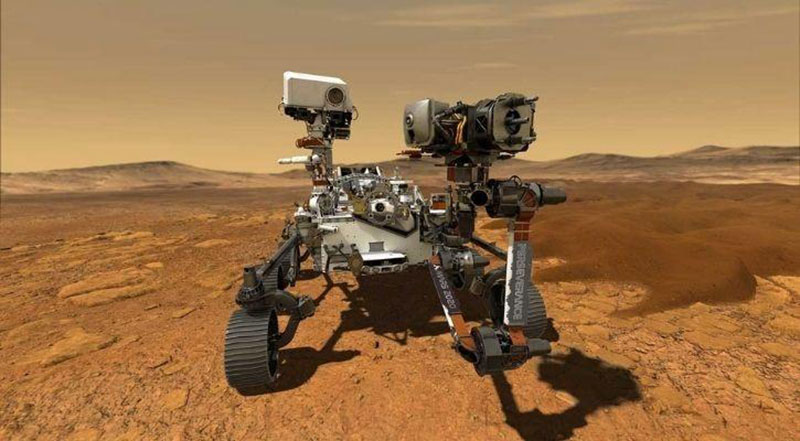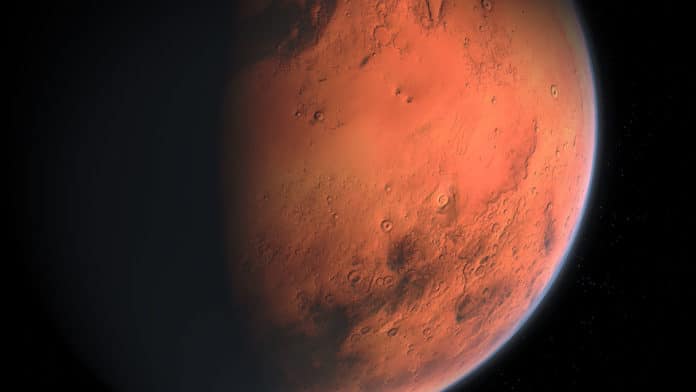The speed of sound is not constant. It varies based on the density and temperature of the medium through which it travels. Sound travels fast when the medium is dense.
Scientists recently confirmed the speed of sound on Mars using equipment on the Perseverance rover. They found that the speed of sound on Mars is strangely different. The results could have significant implications on communication between future Martians.
The sound would take slightly longer to get to your ear in the martian atmosphere. Mars has a lower speed of sound. It travels around 540 mph (~240 meters per second), whereas, on Earth, the speed of sound is 760 mph (~340 meters per second) on Earth.
The Martian atmosphere is about 100 times less dense than on Earth. The denser atmosphere affects how sound waves travel from the source to the detector, resulting in a softer signal.
While communicating on Mars, one needs to get closer to a sound source to hear it at the same volume as you would on Earth.

Mars’ atmosphere consists of 96% of carbon dioxide. This absorbs a lot of higher-pitched sounds, so only lower-pitched sounds would travel long distances. Scientists dubbed this phenomenon as attenuation, which means weakening the signal at certain frequencies. It would be more noticeable the farther you were from the source.
This experience was created with the Perseverance mission team to approximate how sounds would be different in the atmosphere of Mars. NASA’s Perseverance rover landed successfully on the surface of Mars a little more than a year ago and since that time, has been rolling around, studying the landscape with a host of cameras and sensors.
Journal Reference:
- Baptiste Chide et al. Sound Speed on Mars measured by the SuperCam microphone on Perseverance. 53rd Lunar and Planetary Science Conference (2022)
